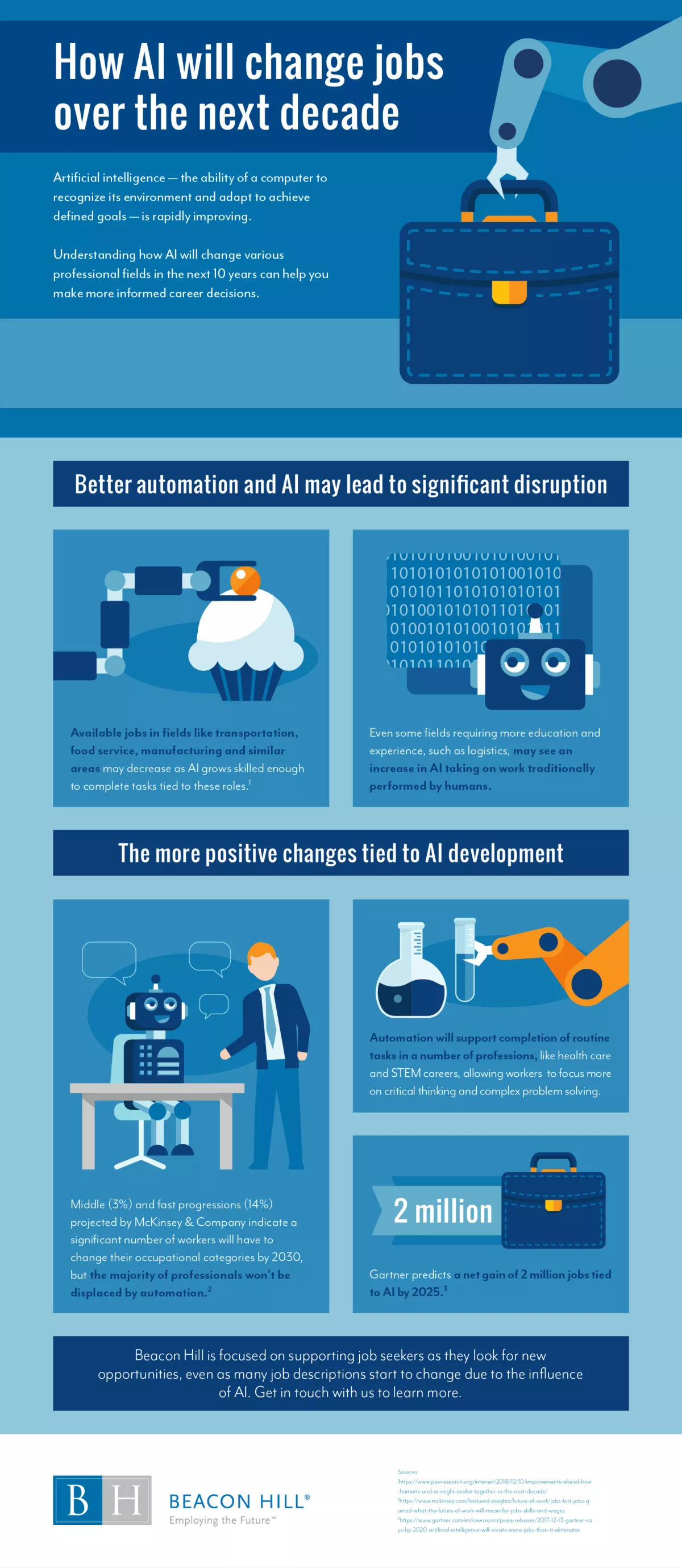How AI will change jobs over the next decade
Artificial intelligence offers some significant benefits to the economy as a whole. The ability for a number of different industries to put AI to work on tasks that are repetitive or error-prone when completed by humans, as well as have automated systems in place for especially dangerous duties, is clearly valuable. Professionals in a variety of roles will also be able to leverage AI to handle time-consuming and rote work, allowing them to focus on higher-level concerns.
However, AI will also create a level of disruption as it becomes more commonplace. It has the potential to displace workers in a variety of fields, ranging from manufacturing to food service and transportation. Our infographic "How AI will change jobs over the next decade" reviews the high-level changes anticipated to come in the next 10 years, both positive and negative.
AI will change the way people work
While there isn't a consensus about detailed specifics related to exactly how, when and to what extent AI will change job descriptions and duties, there is clear agreement that this powerful force will transform the world of work. Machine translators are already used in various contexts, for example. While this removes the need for human professionals to directly translate an entire document, it won't completely eliminate roles involving translation in the foreseeable future. Humans with expertise in language, law and similar fields will still need to review translations, ensure the intended context is preserved and make changes that fine tune the result.
This broad concept of humans overseeing ground-level work done by AI is applicable across industries from health care and life sciences to manufacturing and logistics.
Check out our infographic to learn more about how AI could affect jobs in the coming decade:

 Back to Top
Back to Top